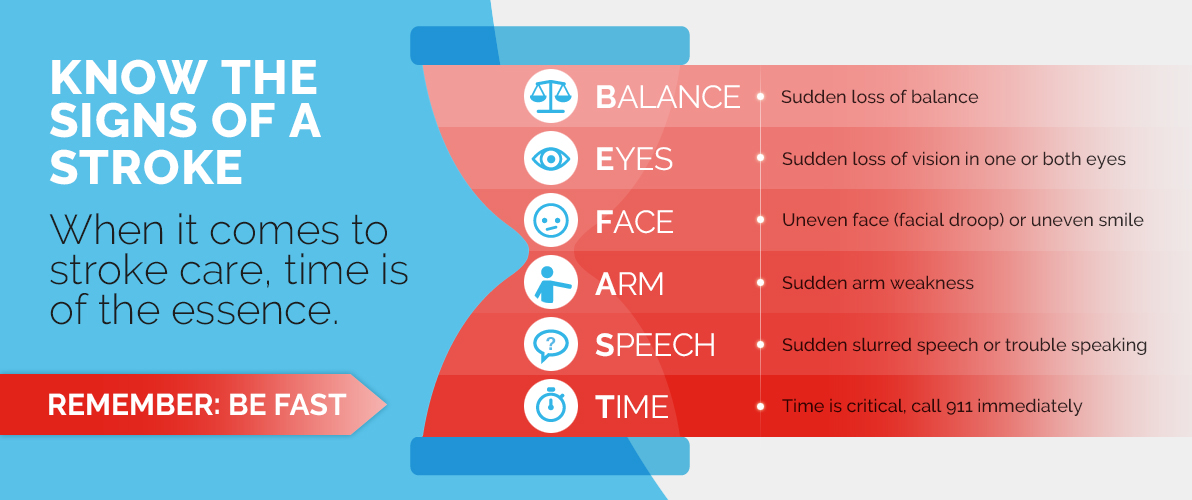Stroke and Women: Understanding Why the Risk is Higher
Women have a higher risk of stroke than men, particularly young women and Black women. A neurologist explains why, and what you can do to reduce the risk.


More women than men have strokes each year, and one in five women will have a stroke in her lifetime, according to the Centers for Disease Control and Prevention. Younger women and Black women have unique risks.
A recent study found that women 35 years and younger are 44% more likely to experience an ischemic stroke (a stroke caused by a blood clot) compared to men the same age, while other studies have found that Black women are twice as likely to have a stroke compared to white women.
“There are sex-specific factors that can increase the risk of stroke in women, like pregnancy, but that’s not the only factor,” says Dr. Eliza Miller, a neurologist at NewYork-Presbyterian/Columbia University Irving Medical Center who specializes in women’s cerebrovascular health. “Certain risk factors affect women differently than men, and there are larger social factors that impact communities of color. When you add these things up, women, and especially Black women, assume a higher risk of stroke over their lifetime.”
Health Matters spoke to Dr. Miller, who is also an assistant professor of neurology at Columbia University Vagelos College of Physicians and Surgeons, to understand the unique stroke risks for young women and Black women, and what people can do to reduce their risk of stroke.

Dr. Eliza Miller
Why are women more at risk for stroke than men?
Dr. Eliza Miller: One of the main reasons the risk of stroke is higher in women than in men is because women on average live longer than men, and age remains a huge risk factor for stroke. The longer you live, the more time you have to have a stroke. The higher lifetime prevalence of stroke in women has often been attributed to that fact.
In the age groups that are 45 and up, men will have a higher risk of stroke. But in the younger group, it’s women who have a higher risk, especially during their reproductive years.
Why is the risk greater among younger women?
One reason may be that the incidence of high blood pressure in children and young adults has increased in recent years, and we know that high blood pressure has a stronger effect on stroke risk in women. “Normal” blood pressure for both men and women is defined as below 120 over 80. But the risk of stroke goes up almost immediately in women as soon as they are beyond 120, whereas in men it’s not until they hit 150.
Pregnancy is another factor that affects younger people. Pregnancy can nearly triple the risk of stroke in women, and pregnancy complications, like high blood pressure during pregnancy, gestational diabetes, preeclampsia, and blood clots, are associated with higher risk of stroke.
Why are Black women at even greater risk of stroke?
Studies have shown that African-American women have higher rates of high blood pressure, obesity, and diabetes than white women, as well as a higher risk of pregnancy-related complications.
Inequities across the social and economic spectrum, called the social determinants of health, also play a role in why Black women have higher stroke risk. If someone grows up with chronic stress and chronic discrimination, it can have a physiological effect on the body that leads to inflammation, increased stress hormones, and higher blood pressure. If you’re living in a world that is systemically set up to discriminate against you, it’s not surprising that your blood pressure might be higher. And if you don’t have access to regular care then you miss out on preventive care and are more likely to have uncontrolled diabetes, uncontrolled hypertension, or uncontrolled cholesterol, all of which will increase your risk of having a stroke at an earlier age.

What else can increase the risk of stroke in women?
Hormonal contraception that contains estrogen can increase the risk of blood clotting events, and therefore increase the risk of stroke. On its own, the risk from this kind of contraception is quite low. But if there are other risk factors, such as smoking, high blood pressure or migraines with aura — meaning someone experiences migraine headaches along with flashes of light or sparkling zigzags in their vision—then taking estrogen-containing contraceptives can further elevate the risk of stroke.
Some risk factors for stroke are simply more common in women. Autoimmune conditions like lupus are more prevalent in women, and any condition that raises your level of inflammation is going to increase your risk of stroke. Women are also more likely to experience depression, which raises your risk.
Are trans women also at higher risk of stroke?
Trans women who take hormones have a higher risk of stroke compared to both cisgender women and men. But there are a lot of factors at play, not just hormone therapy. Some trans women may not be able to access hormone therapy from a doctor, they may not take the right dosage, and they may not seek care due to stigma.
If someone sees a doctor who has experience working with trans women and who can help address other stroke risk factors in addition to the hormones, there is no reason to stop hormone therapy. Transitioning from male to female is safe when you address other stroke risk factors.
Are there stroke prevention strategies for young women and Black women?
It’s important for young women and Black women to get holistic care during their reproductive years. This includes checking and managing blood pressure, cholesterol, and discussing with their doctor other factors that can impact someone’s cardiovascular health, particularly related to contraceptives and pregnancy.
Stroke Prevention Tips
Some risk factors for stroke cannot be controlled, like age, family history, race, sex, or gender. But there are many things people can do to help prevent a stroke. These include:
Exercise. The American Heart Association recommends 150 minutes of at least moderate intensity aerobic exercise, such as riding a bike, jogging or playing tennis.
Eat Healthy. Avoid concentrated sweets, processed and salty foods, and sweetened beverages. Eat plenty of fruits and vegetables, nuts, and lean protein like fish and skinless poultry.
Prioritize Sleep. Poor sleep can raise your blood pressure and cause you to feel exhausted and hungry, which can lead to weight gain and increased risk of stroke. Talk to your doctor if you have sleep problems.
Don’t smoke. Smoking increases the risk of stroke; the risk more than doubles for African Americans who smoke compared to their nonsmoking peers.
Limit alcohol. If you drink alcohol, limit yourself to no more than one drink per day for non-pregnant women and no more than two drinks a day for men.
Eliza Miller, MD, MS, is a neurologist at NewYork-Presbyterian/Columbia University Irving Medical Center and an assistant professor of neurology at Columbia University Vagelos College of Physicians and Surgeons. She has a particular interest in women’s cerebrovascular health through all life stages and is an expert in cerebrovascular complications of pregnancy and the postpartum period.
Additional Resources
Learn more about stroke services and Women’s Health services at NewYork-Presbyterian.
Click here for more on how NewYork-Presbyterian is addressing inequities in healthcare.

